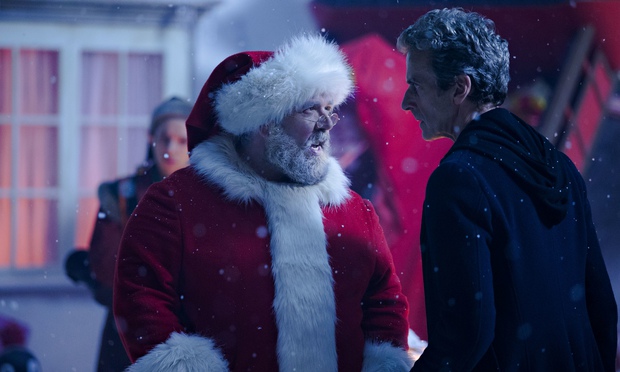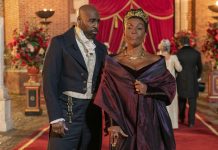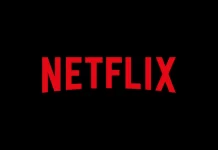
Another Christmas has been and gone, and with it the annual Yuletide tradition of the Doctor Who Christmas special. Has Steven Moffat been a bearer of glad tidings with this year’s offering; Last Christmas, or – much like a tangerine – was it simply a well meant stocking filler?
When last we left the Doctor and Clara, the two had parted ways in the aftermath of the events of Death in Heaven, which saw the death of Danny Pink and the Doctor’s hopes of finding Gallifrey thwarted; both grieving their own personal losses, but both believing the other has found contentment in their lives. This year’s Christmas offering, Last Christmas, picks up the story several months later on Christmas Eve, when Clara is awoken from her sleep by a noise on the rooftop, and – venturing out – discovers that the commotion is being caused by none other than Father Christmas himself (played by Nick Frost); a surprisingly down-to-earth character who jibes her slightly for claiming he is “just a fairytale”.
The Doctor then arrives on the scene and, after a brief altercation with Santa, takes her on a trip in the TARDIS to a scientific station at the North Pole, which has apparently come under attack from creatures called Dream Crabs; aliens that attach themselves to their victims’ faces and create illusionary environments for them in their minds while ingesting their brains in the real world. In danger of being overrun by the Crabs, the Doctor, Clara and the scientific crew are saved by the reappearance of Santa, who says that he is doesn’t want any trouble at the North Pole. From there on, the Doctor, Clara and their allies must repel the Dream Crabs, all whilst attempting to determine if what they are experiencing at any given moment is real or a fantasy brought about by one of the monsters.
To say any more about the episode’s narrative would really be risking spoiling moments that one may prefer not spoiled (although I am fully aware that many reading this review will have seen the episode at the exact same time that I did on Christmas Day), as Last Christmas offers a fair few twists and turns in its hour of running time.
Twists are both a necessity and a gamble when writing a story. Strong twists are genuinely shocking surprises, where the clues were laid out for the audience all along, but hidden in plain sight. However, all too often it is easy to fall into the twin traps of making the twist to obvious or making it such a curveball that it comes as out-of-the-blue, and therefore nonsensical, in the context of the narrative. The twists in Last Christmas are fairly strong, and whilst they do vary in predictability (some very transparent, others not so much), none of them disappoint when it comes time to reveal the true nature of what has been happening, so that much is definitely in the episode’s favour.
Also working in its favour (which came as something of a surprise for me) was the episode’s tone. I must confess, when I first saw the trailers for this year’s Christmas offering, I was somewhat underwhelmed. It looked, to me at least, as though it was going to be rather tonally confused, shuttling between extreme whimsical silliness on the one hand, and frightening horror story on the other. However, as it transpired, this was not the case. Whilst it did veer to much towards the whimsy for my taste on a few occasions, for the most part it what Doctor Who is supposed to do and achieved a good balance between the two potentially contradictory moods as opposed to bouncing between them, used the tone to convey some nice themes of living life to the full in spite of less instead of retreating into dreams, and ultimately did a fair job in justifying those elements of the story that were more on the whimsical side (the existence of Father Christmas being chief among them).
As always, Peter Capaldi and Jenna Coleman gave superlative performances, and its nice to see that their characters’ relationship has slightly mellowed since Series 8. The guest cast were also reasonably strong for the most part. Nick Frost made for a good guest star, giving an interestingly iconic-yet-iconoclastic take on Father Christmas, and the crew of the research station (among them Michael Troughton, son of the late Patrick Troughton, who played the Second Doctor) gave solid performances in what were admittedly fairly conventional ‘extra’ parts.
If I do have a bugbear with any of the guest characters it is, perhaps surprisingly for some readers, with Faye Marsay‘s character Shona McCullough. The problem is not, I hasten to add, Marsay’s performance, which was a very good one. Rather it was more to do with the character as written. Shona was obviously written as endearingly ditzy, and that’s fine in and of itself. But the extent to which that was the case felt, to me at least, rather self conscious and engineered, almost as though Steven Moffat was telling us we ought to like this person, as opposed to allowing us to like her. I wouldn’t be surprised, given how events in the episode pan out, if Shona returns at some point in the near future, and if that happens perhaps the character will feel a bit more organic with time. For right now, though, it just didn’t seem like a very natural character.
I had one or two other issues with the episode too. There’s a line from an internal monologue in Frank Miller’s Batman: Year One (hold on, this is going somewhere) in which Bruce Wayne opines that all that is needed for an effective disguise is “a change in clothing and complexion, and a single, memorable, distracting detail”. It struck me whilst watching that that could be an apt description of this episode, as Last Christmas is – with the best will in the world – a collection of ideas we have seen before, with a slightly different coat of paint (or “complexion”) to disguise it.
I don’t mean so much in terms of the parallels one could draw in terms of setting and basic situation between it and films like Ridley Scott‘s Alien or John Carpenter‘s The Thing. If anything, the episode offers something of a subversion of the types of ‘base under siege’ scenarios present in those films, and – indeed – in uncountable Doctor Who stories both from the pre and post 2005 run of the show. It also highlights that it knows that it is doing this within the context of the narrative. Rather, what I am referring to is the fact that the core conceit of the episode – that of creating uncertainty about what is real and what is unreal – is one that Doctor Who has used in the not too distant past, and in uch the same way; namely in the 2010 episode Amy’s Choice, written by Simon Nye. Add to this a scene in which the companion must be convinced that her ideal life with a loving husband is a fiction she must escape (also seen in Moffat’s own 2008 episode Forest of the Dead), and another in the growing pantheon of “don’t perform action X at/about/too/in the presence of the monster” monsters, and one can’t help but wonder, if only briefly, if the writers’ ideas pool is running a little dry.
Meanwhile, the “single, memorable, distracting detail” designed to draw the viewer’s attention away from this is of course Nick Frost’s Santa, who, truth be told, did not have to be included for the story to work, and in some ways seemed like something of a bolt-on to make the story feel more like a Christmas special (in the same way many argued the robotic Father Christmas brass band in 2005’s The Christmas Invasion were).
All of this said, however, it must also be said that borrowing and repurposing ideas is nothing new when it comes to writing fiction, and ultimately what matters is how the story in and of itself is presented. By way of comparison, I also thought that the Series 8 finale Dark Water/Death in Heaven (which, I should point out, I disliked strongly) consisted largely of a collection of ideas and iconography from other sources. However, my main problem in that case was that – having been recycled – those ideas seemed to me to be haphazardly bolted together in a rather nonsensical fashion. But the same cannot be said of Last Christmas, as whilst it does undeniably owe a lot to numerous sources, the way in which those ideas are arranged together is, for the most part, novel and well thought out.
Ultimately, then, Last Christmas isn’t the best of the Christmas specials, but was nevertheless an enjoyable, well told Christmas tale with genuine emotion at its heart and a good balance of horror and humour; a nice Christmas present that, whilst not as big or as shiny as seasonal as offerings from previous years, is an enjoyable viewing experience nevertheless.




























